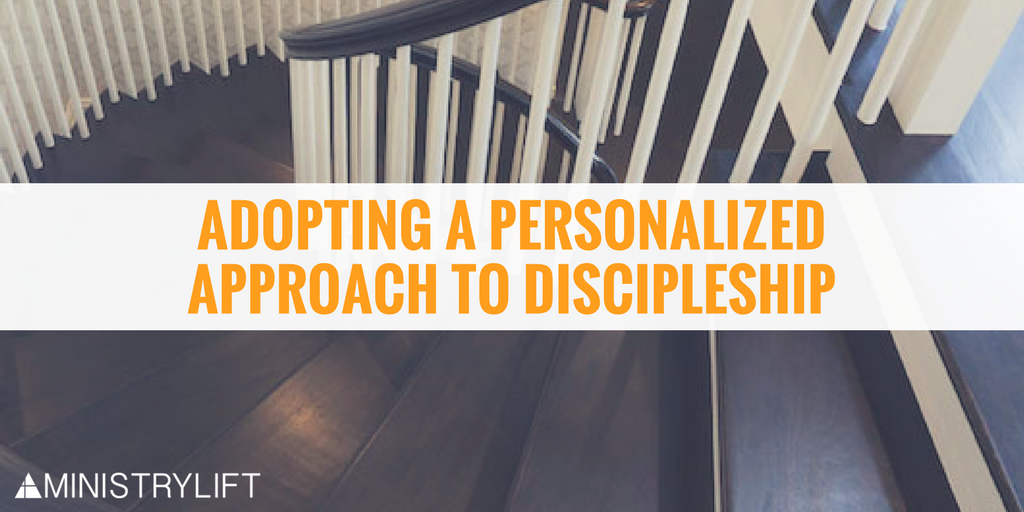Adopting a Personalized Approach to Discipleship
 Imagine a staircase that represents spiritual growth and maturity {1}. One way to disciple would be for someone further up the staircase to call people on lower steps to a higher standard and application of that standard. This might be motivational. A similar approach would be for someone who is more spiritually mature to not only call others to a higher standard, but to provide a detailed plan for how to achieve that growth.
Imagine a staircase that represents spiritual growth and maturity {1}. One way to disciple would be for someone further up the staircase to call people on lower steps to a higher standard and application of that standard. This might be motivational. A similar approach would be for someone who is more spiritually mature to not only call others to a higher standard, but to provide a detailed plan for how to achieve that growth.
What do you notice about these two approaches? They are both truth-based and growth-oriented. They provide an important vision for spiritual maturity. They communicate necessary ideas. Yet, they lack a personal touch and may not actually help a person take the next step in their discipleship journey.
A third approach would be for the disciple-maker to come alongside the disciple—to climb down the stairs and join them in their spiritual journey. This kind of personalized approach allows the disciple-maker to enter the experience of the disciple (and vice versa) and to provide the necessary support and guidance to take next steps.
What are four characteristics of this kind of personalized approach?
We cannot truly understand where people are at apart from a growing relationship with them. As we connect deeply with people, we are able to pray, encourage, support, and speak into their lives in ways that can help them move forward (you can check out Eight Characteristics of Disciple-making Relationships for more on these kinds of relationships).
2. It involves customization
A large-group or programmatic approach to discipleship is often good for covering broad discipleship themes. A highly relational approach allows the disciple-maker to customize the application of this kind of content, so that it has maximum value for the other person.
3. It necessitates a coaching/mentoring mindset
A personalized approach to discipleship involves intentionally turning our conversations into mentoring opportunities. How can we partner with the Holy Spirit in what He wants to do in the other person’s life? What questions can we ask that will nudge the other person toward a deeper awareness of their situation and the next steps they need to take (see Why Being a Mentor Isn't as Scary as You Think and The Five Stages of a Structured Coaching Conversation blogs for more on coaching).
4. It is possible and highly desirable within structured programs
One of my mentors once said, “So often, we only achieve balance as we swing, like a pendulum, from one extreme to the other.” In the past, we have tried a programmatic approach to discipleship with mixed results. Yet, when programs provide a space where people can come alongside one another in the discipleship journey, they have a much greater potential for facilitating life change. We don’t have to throw out programs, but can use them for communicating truth and building relational bridges that allow for in-depth discipleship.
Increasingly, millennials and others crave a personalized approach to discipleship that helps them make sense of their current reality and take steps forward as followers of Jesus. Any disciple-making strategy must include this personal touch for maximum discipleship to occur.
Randy Wollf is the Director of MinistryLift and Associate Professor of Practical Theology and Leadership Studies at MB Seminary.
Note: A personalized approach to discipleship is one of eleven key elements for Developing a Strategic Pathway for Discipleship in Your Church.
{1} I'm indebted to Kajle Radbourne for pointing me to the disciple-making staircase idea.
